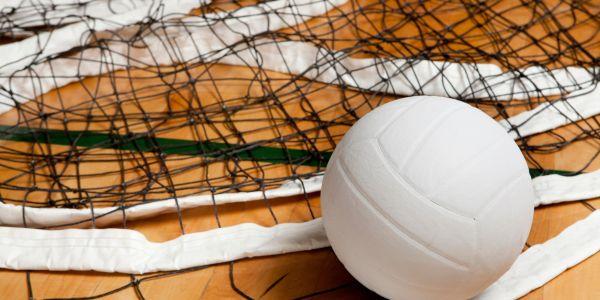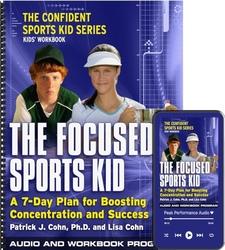
Solving Problems as an Athlete
Competitive sports have their fair share of ups and downs, and most players experience highs and lows during their career.
When players are at a low point, they sometimes feel like they are the only ones who experience tough times.
For example, if your young athlete was a three-year starter, and for seemingly no reason, the coach takes her out of the starting lineup for several games, many questions, doubts and negative thoughts may occupy her mind:
- Why am I being benched?
- Will I ever start again?
- What if my coach no longer believes in me?
- Maybe I’m not good enough to play at this level.
These thoughts are relatively normal for any player in these circumstances.
However, these thoughts focus on the problem.
If sports kids are not careful and fall prey to their doubts, they will feel trapped and helpless. What happens after these thoughts will impact their immediate future.
If young athletes focus on the problem, they will lose confidence and motivation. They will not feel in control of their future and hesitate to take action to move forward.
However, if they focus on finding solutions, they will feel empowered. They will feel motivated to grow their game mentally, physically and technically.
When sports kids are solution-oriented, they will develop the mental toughness needed to conquer challenges.
Solution-oriented sports kids have these skills:
- Goal Setting – They know what they need to overcome their current challenge.
- Focus – Kids understand how to address their current circumstances.
- Confidence – Kids can leverage their current skill set to improve their situation.
- Perspective and Patience – Young athletes understand that it takes some amount of time to move forward.
- Motivation – Motivated athletes identify what they need to do today to get the ball rolling in the right direction.
Mental skills not only help young athletes overcome obstacles, but these skills can boost kids’ performance.
After being waived by Gotham FC, winger Jenna Bike waited eight weeks for another opportunity. Bike acknowledged she struggled with her situation.
During those weeks, Bike continued to train and develop her skills, knowing she still wanted to play in the National Women’s Soccer League.
“I really wanted to stay in this league and stay stateside, so it was a lot of training, [especially] not knowing where my future was going to be or what was going to happen,” Bike said. “It was honestly a little difficult at times.”
After her 8-week layoff, Chicago Red Stars signed Bike to a two-year contract with an option for a third year. In a short time, Bike has improved substantially.
Not only is Bike excited to play again, but she wants to be a difference-maker and knows that it starts with a strong mental game.
“The technical piece is something you can always control and something I always try and work on, but where I had to pay more attention is the mental piece, playing with confidence, and being the player I know I can be every day, no matter who I am standing next to or who is on the field with me,” she said.
“Believing in myself has been so hard since I joined the league, but slowly, I’m starting to break the shell and get back to the basics. I know how to play soccer and have all the pieces; it’s just the mental side.”
Mental skills help bring into focus solutions that empower players to meet obstacles head-on. The truth is that well-developed mental skills can take athletes from average to awesome.
Athletes shouldn’t wait until problems arise before paying attention to their mental game. If they take a proactive approach to building mental skills, they can prevent obstacles from occurring in the first place.
Related Kids Sports Psychology Articles:
- Sports Parents and The Problems with Focusing On Kids’ Mistakes
- The Problems with Favoritism in Youth Sports Athletes
- Kids Fear of Mental Coaching
*Subscribe to The Sports Psychology Podcast on iTunes
*Subscribe to The Sports Psychology Podcast on Spotify
THE FOCUSED SPORTS KID (DIGITAL DOWNLOAD)

“The Focused Sports Kid” helps sports kids who get easily distracted and can’t maintain their focus in competition. In this program, you and your athlete learn concentration-boosting strategies to help young athletes develop laser focus during competition. “The Focused Sports Kid” is two programs in one. You get a manual and Audio program for parents/coaches, and a PDF workbook and audio programs for young athletes.
“We just completed the first ten tips, it has helped tremendously for (our daughter) and us. We’ve learned to keep our behavior and comments in check. She’s letting mistakes happen and not worrying about them, she’s now just moves on to the next play with the same attitude as before the mistakes. She’s playing more aggressively all game. Her coach even mentioned that whatever we are doing, keep doing because it’s working.” ~Scott, Sports Dad
